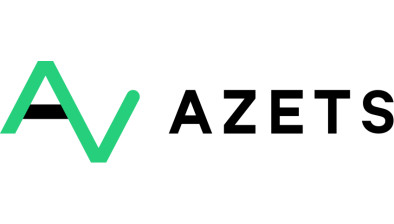Businesses urged to explore non-salary benefits to mitigate NIC rise
Clair Williams
Businesses concerned about the new 15% employers’ national insurance contributions (NIC) rate have less than 50 days in which to reduce the impact of the higher rate by embracing non-salary alternatives that reduce costs whilst continuing to provide employees with attractive remuneration packages, an employment tax specialist has said.
According to a report last year by the CBI, the higher 15% employers NIC rate will cost British businesses in the region of £25bn next year whilst a survey by the Bank of England also warned that around 54% of businesses are planning to cut jobs. To help businesses reduce the impact of the new NIC rate, Clair Williams, Azets’ national head of employment taxes, has unveiled a 5 point non-salary plan that employers can us to contain costs and boost recruitment and retention.
She said: “The higher NIC rates will cost Scotland’s businesses millions of pounds of additional NIC. Many companies also warn that they will cut costs and investment, freeze recruitment or even reduce staff numbers.
“We would encourage businesses to consider alternatives that reduce NIC such as enhanced employer pension contributions, provision of staff canteen facilities, introduction of employee share schemes and efficient structuring of staff tips.
Ms Williams added: “As these alternatives can reduce costs and enhance employee experience, businesses can continue to invest in staff recruitment, retention, training and wellbeing. Providing a range of salary alternatives can also free up cash flow that can be used for investment in innovation, marketing and customer relations.”
Azets ‘5-point guide’ includes options that are simple to implement such as annual functions through to more complex choices such as workplace nursery facilities.
Tax planning – review current policies and processes to implement tax and NIC saving mechanisms
- Implementation of salary sacrifice schemes for pensions, electric vehicles, cycle to work and purchase of additional annual leave
- Review benefits and expenses policies to maximise tax efficiency (in particular company vehicle policies)
- Introduction of a tronc scheme resulting in NIC savings (common pay arrangement for payment of staff tips in the hospitality industry)
Utilising tax reliefs and exemptions – consider any “tax-free” options available to incentivise staff
- Trivial benefits exemption, annual functions exemption, canteen exemption, workplace nursery exemption
- NIC reclaims on employee mileage payments
Employer provision of discounted non-cash benefits and rewards – any tax is due based on the discounted rate
- Experiential trips (tickets, weekend away)
- Educational or wellbeing events
- Gift cards, mobile phone, gym membership
HR, personnel and hiring – changes to hiring strategies can reduce cost
- Employ apprentices
- Consider job sharing and flexible working
- Employ armed forces veterans
- Outsource non-essential services (must consider employment status / IR35)
Employee incentive schemes – these can act as a fantastic incentive and engagement tool
- Enterprise Management Incentive (EMI) schemes – tax-efficient share option scheme designed for use by start-up or growing, higher-risk trading companies
- Company share option plan (CSOP) – tax-efficient share option scheme where employees are granted options to acquire shares in their employer where any gain on the exercise of options is income tax and NIC free
- Share incentive plan (SIP) – where all the relevant conditions are met, and the shares are held in the SIP trust for 3-5 years (depending on the type of award), no income tax arises on the shares, and no capital gain arises while the shares are held in the SIP trust
- Implement other “unapproved” employee share schemes – different share schemes have different tax implications but as value can be linked to future growth of business
Concluding, Ms Williams said: “The 15% rate of employers NIC is already having a profound impact on Scotland’s businesses with many rushing to find ways of cutting costs, reducing staffing and halting investment.
“It is important that business owners are aware that there are plenty of options available that allow them to motivate employees and future-proof the business. By taking a creative and strategic approach to remuneration and incentive strategies, most businesses should be able to support staff recruitment and retention whilst also cutting costs.”









